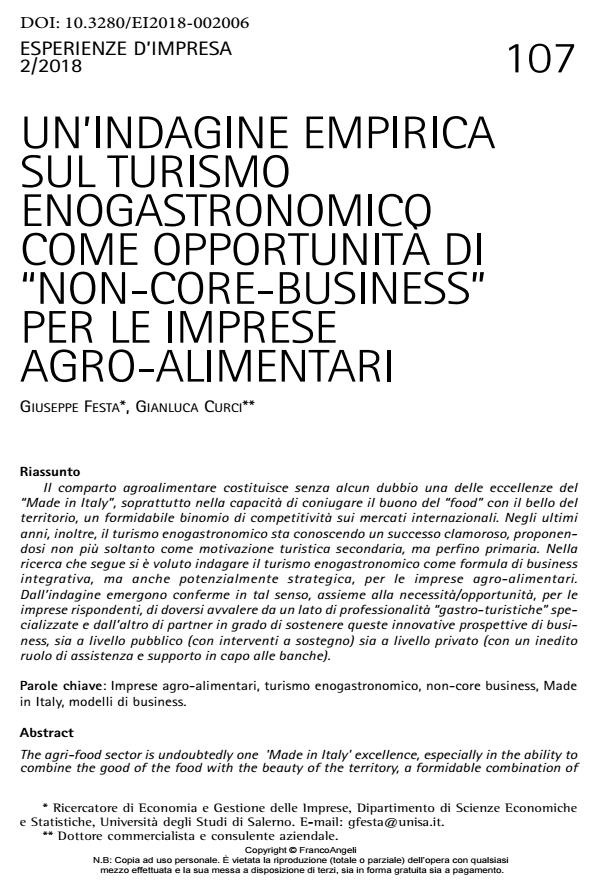Un’indagine empirica sul turismo enogastronomico come opportunità di "non-core-business" per le imprese agro-alimentari
Journal title ESPERIENZE D'IMPRESA
Author/s Giuseppe Festa, Gianluca Curci
Publishing Year 2021 Issue 2018/2
Language Italian Pages 18 P. 107-124 File size 676 KB
DOI 10.3280/EI2018-002006
DOI is like a bar code for intellectual property: to have more infomation
click here
Below, you can see the article first page
If you want to buy this article in PDF format, you can do it, following the instructions to buy download credits

FrancoAngeli is member of Publishers International Linking Association, Inc (PILA), a not-for-profit association which run the CrossRef service enabling links to and from online scholarly content.
The agri-food sector is undoubtedly one 'Made in Italy' excellence, especially in the ability to combine the good of the food with the beauty of the territory, a formidable combination of competitiveness on international markets. In recent years, moreover, food and wine tourism has been experiencing a sensational success, acting no longer only as a secondary, but even primary, tourist motivation. In the research that follows food and wine tourism has been investigated as an integrative business formula, potentially strategic, for agri-food firms. In this respect, confirmations have emerged from the investigation, together with the need / opportunity, for responding firms, to make use, on one side, of specialized 'gastro-tourist' professionalism and, on the other side, of partners able to support these innovative business perspectives, both at the public level (with support interventions) and at the private level (with an unprecedented role of assistance and support for the banks).
Keywords: Agri-food firms, Food and wine tourism, Non-core business, Made in Italy, Business model;
Giuseppe Festa, Gianluca Curci, Un’indagine empirica sul turismo enogastronomico come opportunità di "non-core-business" per le imprese agro-alimentari in "ESPERIENZE D'IMPRESA" 2/2018, pp 107-124, DOI: 10.3280/EI2018-002006